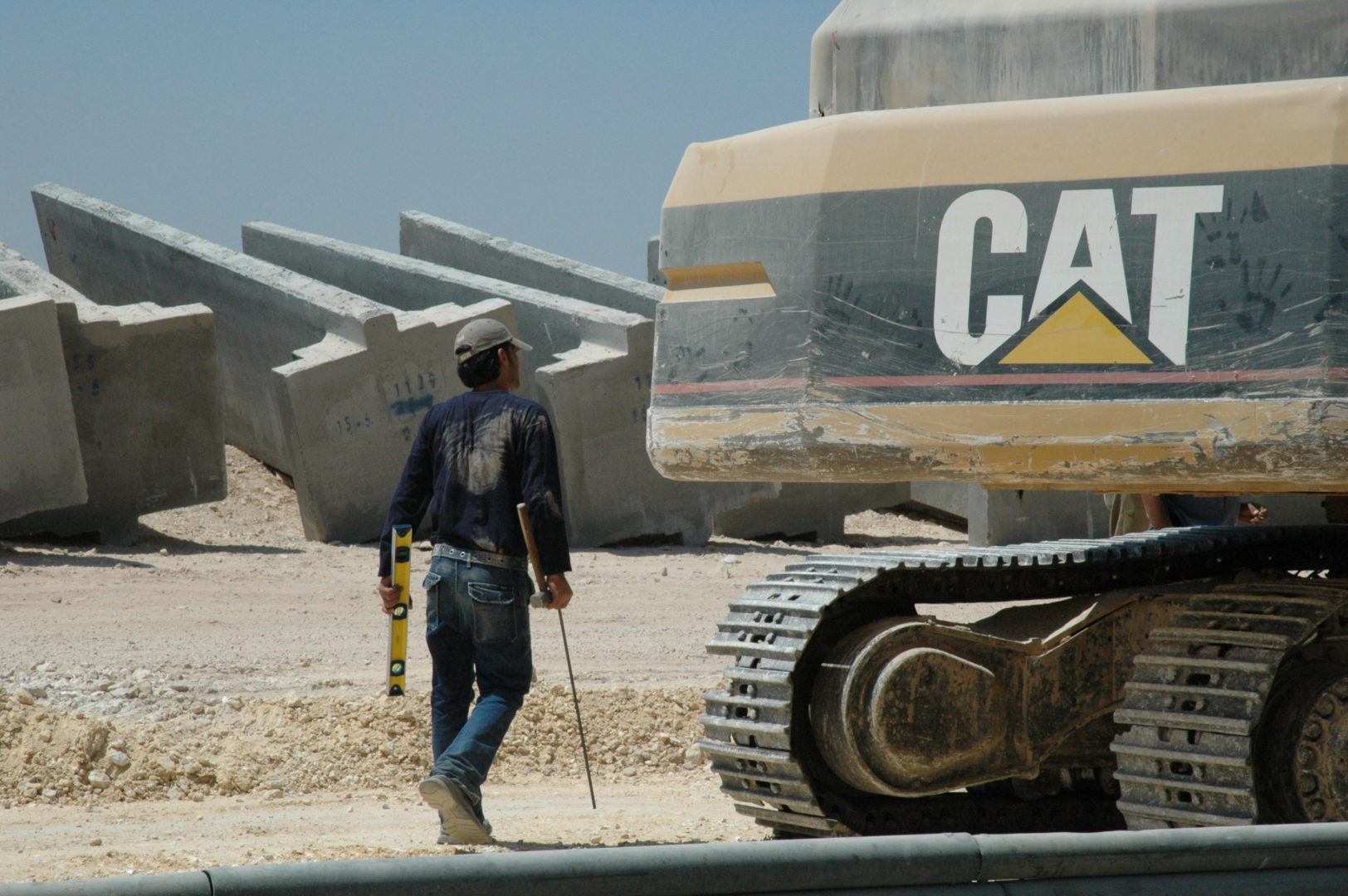Regavim is a small Israeli organization that’s not afraid to take on much bigger opponents.
In the case of the 10-year-old Israeli NGO, it’s the European Union (EU) that has come into its crosshairs recently for sponsoring at least 1,000 illegally constructed houses in areas in the West Bank that are under Israeli control.
Regavim, which calls itself a social movement that promotes “a Jewish Zionist agenda for the State of Israel,” believes the EU is violating both Israeli law and international law in cahoots with the Palestinian Authority to establish facts on the ground, take over strategic land and blacken Israel’s reputation when it responds as any sovereign nation would do to ensure the law is enforced.
Ari Briggs is director of Regavim’s international department. He was in Toronto last week to publicize the organization’s efforts to preserve Israeli sovereignty and reveal the steps taken by outsiders to undermine it.
READ: LEADERS FROM ISRAELI SETTLEMENTS TO SPEAK IN TORONTO
Regavim asserts that between 2012 and 2014, more than 400 illegal buildings were constructed by the EU in the Adumim region of the West Bank.
The story has become a hot-button issue in Britain, which is considering leaving the European Union. MPs and others were asking why British funds were used by the EU to illegally build houses in the disputed territories that would ultimately be knocked down and even rebuilt.
Not only is the EU funding and constructing the structures, Briggs said, it’s planting its flag on the buildings to deter the Israeli government from demolishing them. And it has claimed diplomatic immunity for its diplomats involved in the “humanitarian” construction.

Regavim claims Israel is ceding sovereignty over land to the Arab sector, including within parts of Israel proper. There is, Briggs has written, “a massive illegal construction in the Arab sector, in the south, centre and north of the country.”
He cited the case of the town of Arara, where 20 per cent of homes were built illegally, even thought the town’s municipal plan provides for the construction of thousands of additional residential units.
In addition, Arabs are building in nature reserves, creating a harmful environmental impact, and even within military “fire zones.” The Palestinian aim is to hamper Israel training while the case winds its way through the court system, Briggs said.
Regavim’s stated mission is “to ensure responsible, legal, accountable and environmentally friendly use of Israel’s national lands and the return of the rule of law to all areas and aspects of the land and its preservation.”
Regavim’s legal and PR advocacy has raised hackles in some quarters, Briggs acknowledged, garnering bad press and the scorn of left-wing groups. Its Wikipedia entry, for example, cites critics calling it a “settler-colonial NGO” and one that aims to force the demolition of Arab homes and forced relocation of non-Jews.
Briggs disputes those characterizations. “We talk about the equal application of the law, which sounds like a liberal concept, but [left-wing activists] favour their own use of the law,” he said.
READ: P.A. CIRCULATING UN RESOLUTION TO CONDEMN ISRAELI SETTLEMENTS
With its resort to the courts, Regavim has taken a page out of the left-wing NGO playbook, and “they hate us for that. The court is one area that the left felt so comfortable in… We’re catching them out at their own game,” he said.
Briggs said illegal building violates the Oslo accords, under which the Palestinian Authority has control over areas A and B of the West Bank, in which 95 per cent of the Palestinians live. Israel controls Area C, a largely uninhabited area of state-owned land, and is responsible for all its building development. Regavim’s research revealed that people in areas A and B were being offered free land, housing, water and electricity to move into disputed buildings in Area C.
Briggs rejected critics’ claims the Palestinians are merely building on land they’ve always owned and Israel wrongly demolishes Palestinian dwellings while allowing Jewish ones to remain.
Regavim examined the data and found “it’s 10 times more likely for judges to issue a stop work order for Jewish buildings than for Arab buildings,” he said.
READ: HEBRON SHOOTING RAISES SERIOUS QUESTIONS
The public perception is the opposite, but that’s “the big bluff” being advanced by anti-Israel activists, he added.
Regavim found 30,000 illegal Arab-owned structures in Area C and 6,000 illegal Jewish structures. Regavim uses drones to fly over territory under investigation, then compares before-and-after aerial surveys, which shows that the lands were unoccupied before Palestinian building began.
